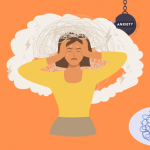
Image Source: Pexels
If you frequently feel decreased energy during the day, there are a number of natural ways to address this issue. The following five strategies are healthy tactics that can help you experience enhanced energy throughout the day.
1. Get a Good Night’s Sleep
Sleep deprivation is associated with daytime fatigue and sleepiness [1]. However, research also shows that sleep deprivation has a negative impact on perceptions of task difficulty and heuristics, which refers to the ability to make logical decisions and solve problems quickly [2]. More specifically, individuals who are sleep deprived (repeatedly sleeping less than seven hours) tend to find various mental tasks more difficult and often require more time to complete such tasks than people who get a good night’s rest (sleeping for at least seven hours) [2]. This means that sleeping for seven hours or more every night not only helps you wake up feeling refreshed, but it prevents fatigue and sleepiness during the day, while also improving your ability to remain mentally astute.
Avoiding the use of electronics before going to bed is helpful in promoting a good night’s sleep. This is because most electronic devices emit blue light that mimics sunlight and this subsequently decreases the production of melatonin [3]. The body’s circadian rhythm or sleep-wake cycle is regulated by the release of melatonin. Therefore, the light that is emitted by various electronics can cause individuals to stay awake longer at night and this can lead to the gradual loss of energy during the day [3]. (See also: [Infographic] How to Get a Good Night Sleep)
2. Eat Nutrient-Rich Meals and Snacks
It is important to eat well-balanced meals, especially breakfast. As research shows, individuals who eat a hearty breakfast are usually in a better mood and tend to have more energy during the day than those who skip breakfast [4]. Furthermore, skipping any meal or eating irregularly increases the chances of gradually becoming fatigued as the day progresses [5]. This means that eating properly and at regular intervals helps sustain adequate energy levels. (See also: 5 Healthy Snacks for Weight Loss)
3. Find Positive Ways to Deal with Stress
Prolonged stress is a risk factor for decreased mood and burnout. [6]. In particular, “burnout” is described as a stress-related health issue that is characterized by fatigue, physical ailments, impaired mental performance, and sleep problems [7]. Accordingly, stress-induced health problems dramatically drain people’s energy and stress is also linked to reduced work performance as well as the loss of motivation to carryout various tasks [7].
Therefore, it is important to deal with stress before it leads to these types of health issues. One strategy that can help people cope with stress includes incorporating relaxing activities into your day. Several examples include: taking a brisk walk during a break, listening to relaxing music, reading, and talking to a friend or loved one in person or on the phone.
4. Exercise Regularly
Engaging in physical activity such as walking for as little as 10 minutes can quickly boost your energy levels, with these benefits lasting for two hours [8]. Continuing with this type of exercise for three or more weeks enhances overall mood and energy [8]. Exercising also increases the concentration of endorphins, which are hormones that promote relaxation [9]. A 10-minute walk can easily be added to even the busiest of routines.
5. Try Dietary Supplements that promote mental and physical stamina
Dietary supplements that support adrenal function may be especially beneficial for people who experience decreased energy levels during the day. For instance, Ashwagandha, a well-known herb and adaptogen, may help promote various processes in the body including adrenal function, as well as nervous system, immune, and hormonal health. Ashwagandha also promotes healthy mental and physical stamina and function throughout the day, while supporting the body’s response to occasional stress.[10-12].
Taking a B vitamin complex, especially one that contains methylcobalamin (Vitamin B12) and pantothenic acid (Vitamin B5), promotes the body’s energy levels by supporting oxygen delivery to different organs and tissues.[13]. Vitamin B deficiencies have been linked to mental fatigue and impaired cognitive function [14, 15]. Vitamin B6, in particular, promotes a healthy and normal response to stress. [16].
Another beneficial nutrient is the essential amino acid L-Tyrosine, which supports the production of several neurotransmitters that play a role in energy-production, cognition, mood, and memory function, among others [17-19]. L-Tyrosine is particularly useful for people who may experience occasional stress since stress lowers the levels of neurotransmitters in the brain such as dopamine and epinephrine and this may cause mental impairments [19]. However, research shows that taking L-Tyrosine regularly may promote healthy mental function in times of occasional stress. [20-22].
Additional supplements that may promote healthy energy levels include: American Ginseng, Rhodiola Rosea, Eleuthero root, Reishi Mushroom. Looking for a supplement that contains a combination of these ingredients typically makes it easier to incorporate dietary supplements into your daily routine.
Overall, the combination of these five natural methods can help support healthy energy levels even if you frequently deal with hectic situations. (See also: Try These Brain Enhancement Supplements, Diets And Exercises [For A Healthy Brain])
About The Author:
Vital Nutrients is dedicated to manufacturing high quality supplements that promote health, wellness and vitality. Our stringent standards and extensive laboratory analyses has led to our supplements being used and trusted by hospitals, healthcare practitioners and consumers worldwide. Nothing is more important than the quality of our supplements.
References
- Singareddy R, Bixler EO, Vgontzas AN. Fatigue or daytime sleepiness? J Clin Sleep Med. 2010; 6(4):405.
- Engle-Friedman M, Mathew GM, et al. The role of sleep deprivation and fatigue in the perception of task difficulty and use of heuristics. Sleep Sci. 2018; 11(2):74-84.
- Figueiro MG, Bierman A, Plitnick B, Rea MS. Preliminary evidence that both blue and red light can induce alertness at night. BMC Neurosci. 2009; 10:105.
- Spence C. Breakfast: The most important meal of the day? Int J Gastron Food Sci. 2017; 8(1-6).
- Tanaka M, Mizuno K, Fukuda S, et al. Relationships between dietary habits and the prevalence of fatigue in medical students. Nutrition. 2008 Oct;24(10):985-9.
- Plieger T, Melchers M, Montag C, et al. Life stress as potential risk factor for depression and burnout. Burnout Res. 2015; 2:19-24.
- van Dam A. Subgroup Analysis in Burnout: Relations Between Fatigue, Anxiety, and Depression. Front Psychol. 2016;7:90.
- Thayer RE. Energy, tiredness, and tension effects of a sugar snack versus moderate exercise. J Pers Soc Psychol. 1987;52(1):119-25.
- Mikkelsen K, Stojanovska L, et al. Exercise and mental health. Maturitas. 2017;106:48-56.
- Chandrasekhar K, Kapoor J, Anishetty S. A prospective, randomized double-blind, placebo-controlled study of safety and efficacy of a high-concentration full-spectrum extract of ashwagandha root in reducing stress and anxiety in adults. Indian J Psychol Med. 2012;34(3):255-62.
- Sharma AK, Basu I, Singh S. Efficacy and Safety of Ashwagandha Root Extract in Subclinical Hypothyroid Patients: A Double-Blind, Randomized Placebo-Controlled Trial. J Altern Complement Med. 2018;24(3):243-248.
- Auddy B, Hazra J, et al. A standardized withania somnifera significantly reduces stress-related parameters in chronically stressed humans: A double-blind, randomized placebo-controlled study. JANA. 2008: 11(1):50-56.
- Werbach MR. Nutritional strategies for treating chronic fatigue syndrome. Altern Med Rev 2000;5:93-108.
- Vogel, T., Dali-Youcef, N., Kaltenbach, G., and Andres, E. Homocysteine, vitamin B12, folate and cognitive functions: a systematic and critical review of the literature. Int J Clin Pract 2009;63(7):1061-1067.
- Snowdon DA, Tully CL, Smith CD, et al. Serum folate and the severity of atrophy of the neocortex in Alzheimer disease: findings from the Nun study. Am J Clin Nutr 2000;71:993-8.
- Maggini, S., Wintergerst, E. S., Beveridge, S., and Hornig, D. H. Selected vitamins and trace elements support immune function by strengthening epithelial barriers and cellular and humoral immune responses. Br J Nutr 2007;98 Suppl 1:S29-S35.
- Gibson CJ, Wurtman RJ. Physiological control of brain catechol synthesis by brain tyrosine concentration. Biochem Pharmacol 1977;26:11371142.
- Wurtman RJ, Larin F, Mostafapour S, Fernstrom JD. Brain catechol synthesis: control by brain tyrosine concentration. Science 1974;185:183-184.
- L-tyrosine. Monograph. Altern Med Rev. 2007;12(4):364-8.
- Banderet LE, Leiberman HR. Treatment with tyrosine, a neurotransmitter precursor, reduces environmental stress in humans. Brain Res Bull 1989;22:759-762.
- Dollins AB, Krock LP, Storm WF, et al. L-tyrosine ameliorates some effects of lower body negative pressure stress. Physiol Behav. 1995;57:223-230.
- Deijen JB, Orlebeke JF. Effect of tyrosine on cognitive function and blood pressure under stress. Brain Res Bull 1994;33:319-323.




